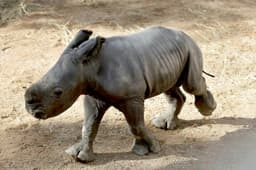Home / Environment / IUCN Chief Menon Drives Diversity Shift, Aims to Expand Red List
IUCN Chief Menon Drives Diversity Shift, Aims to Expand Red List
31 Oct, 2025
Summary
- Menon reforms IUCN's steering committee for greater diversity
- Plans to replicate successful elephant conservation model across groups
- Wants to expand Red List to over 1 million species

In October 2025, Razan Al Mubarak Menon, the newly appointed Director General of the International Union for Conservation of Nature (IUCN), has wasted no time in implementing key changes. On his second day in office, Menon reformed the IUCN steering committee to include more women and better representation from the Pacific Islands and other sub-regions.
Menon, a multi-award-winning conservationist with 25 years of experience at IUCN, is now looking to replicate the successful model he used during his tenure as head of the Asian Elephant Specialist Group. Under his leadership, all 13 countries home to Asian elephants signed a common minimum programme that ensured specific, time-oriented conservation plans. This resulted in 10 of the 13 countries setting up national elephant action plans, and helped keep the species from going extinct in at least one country, Vietnam.




